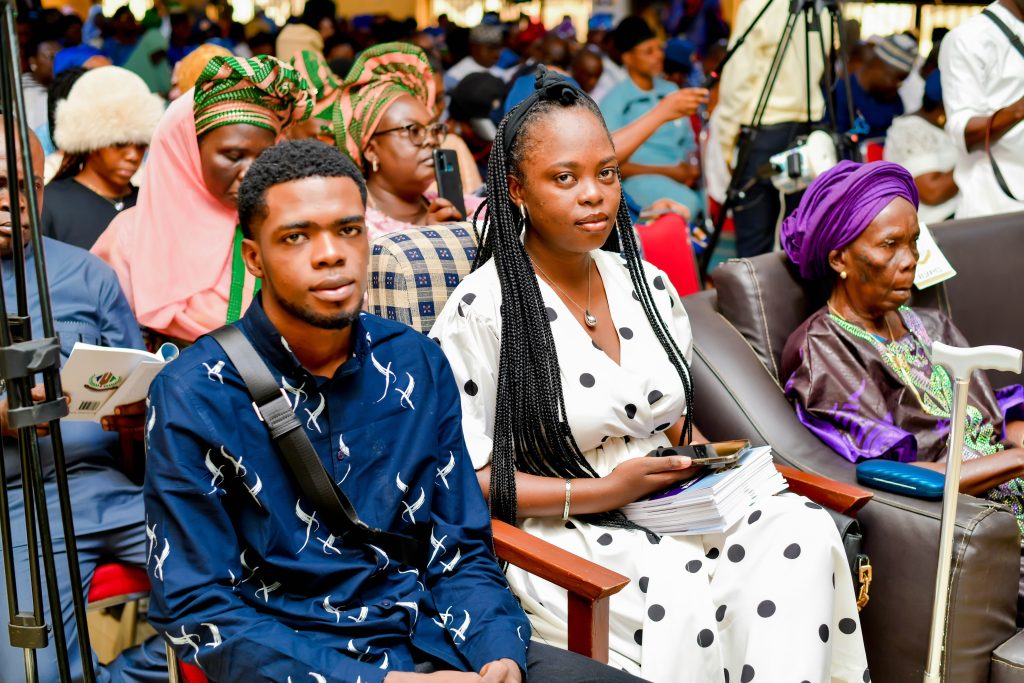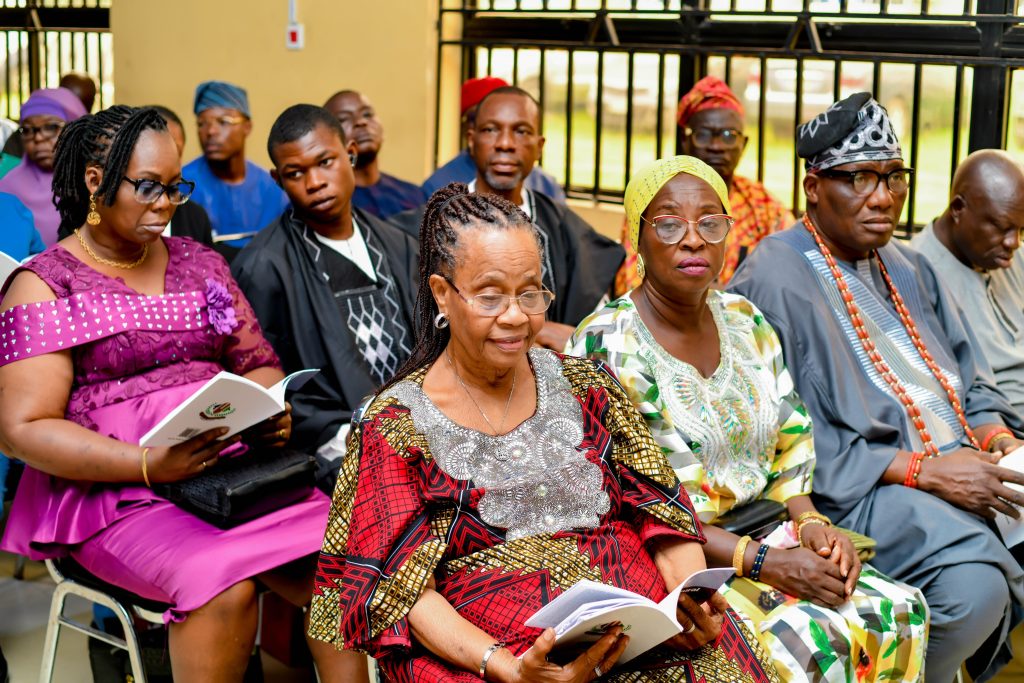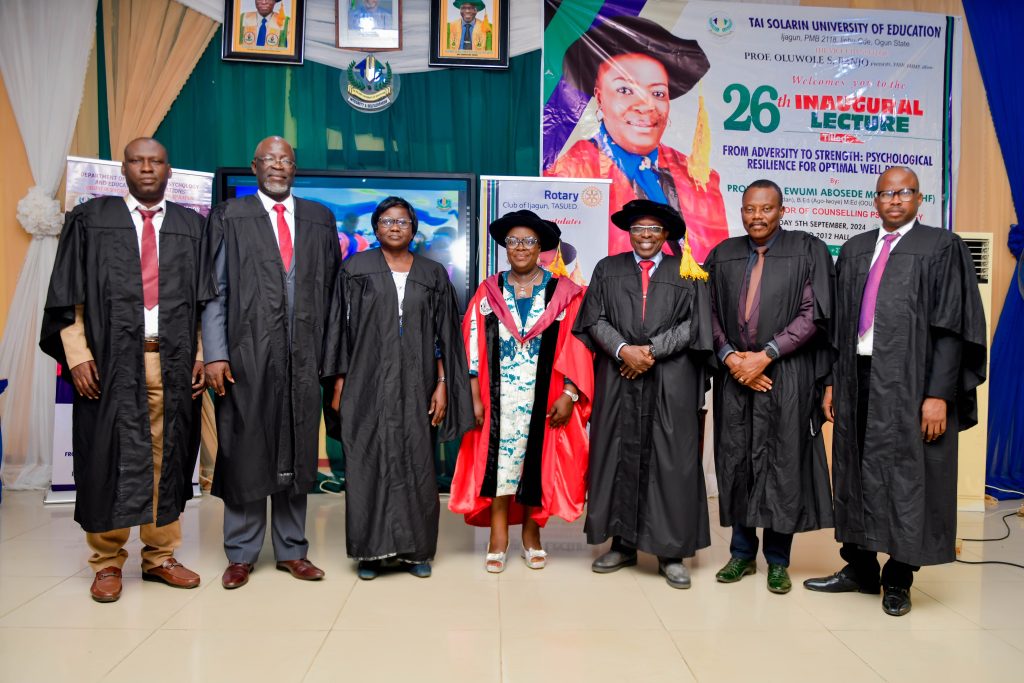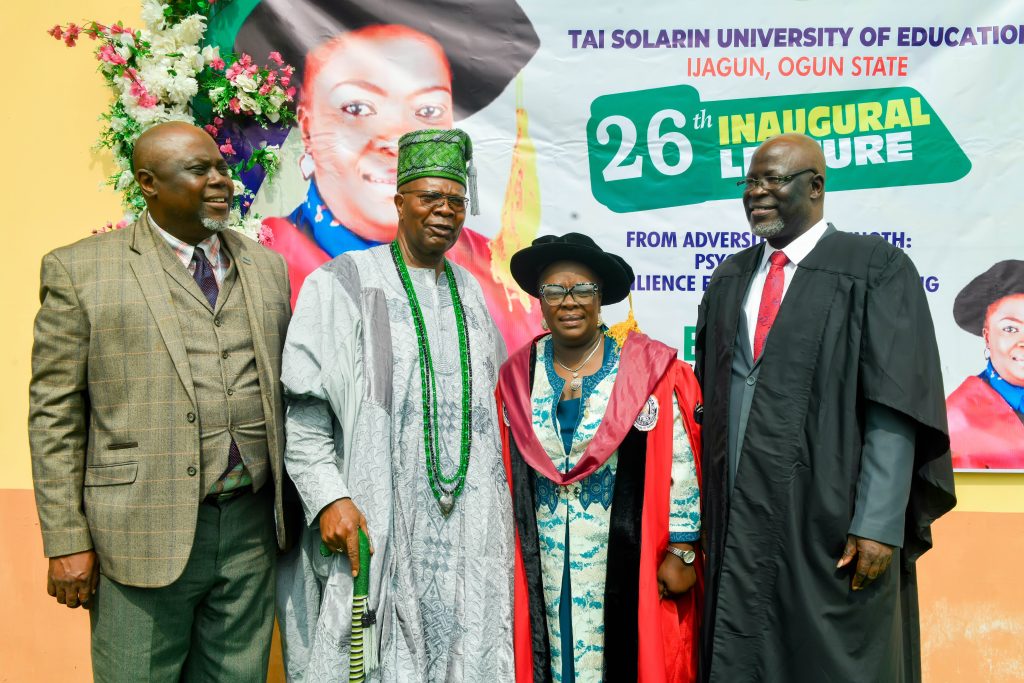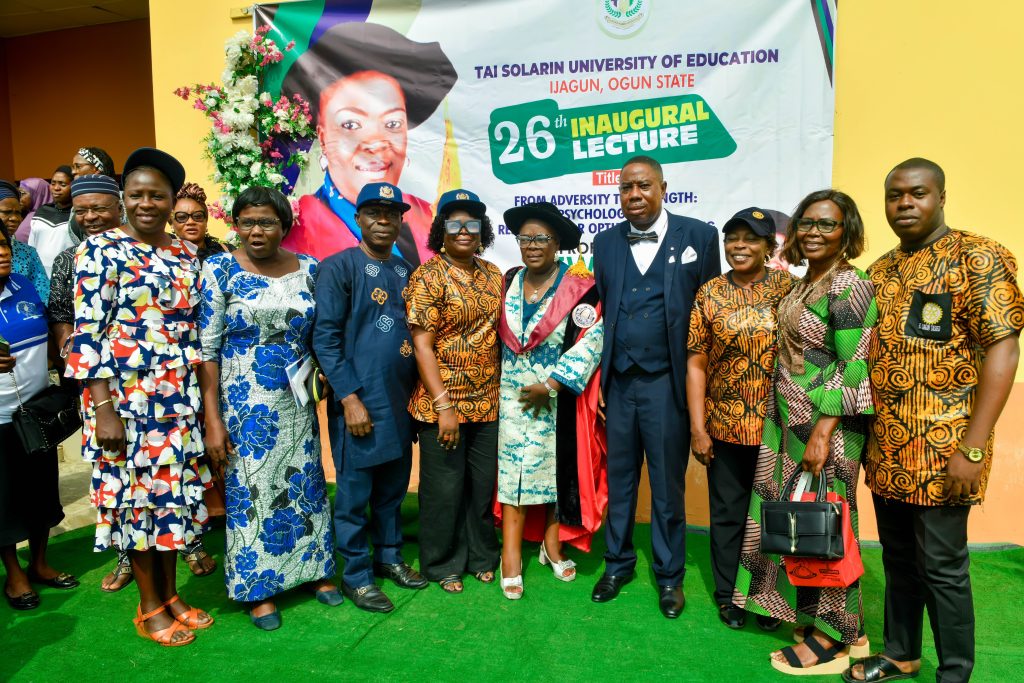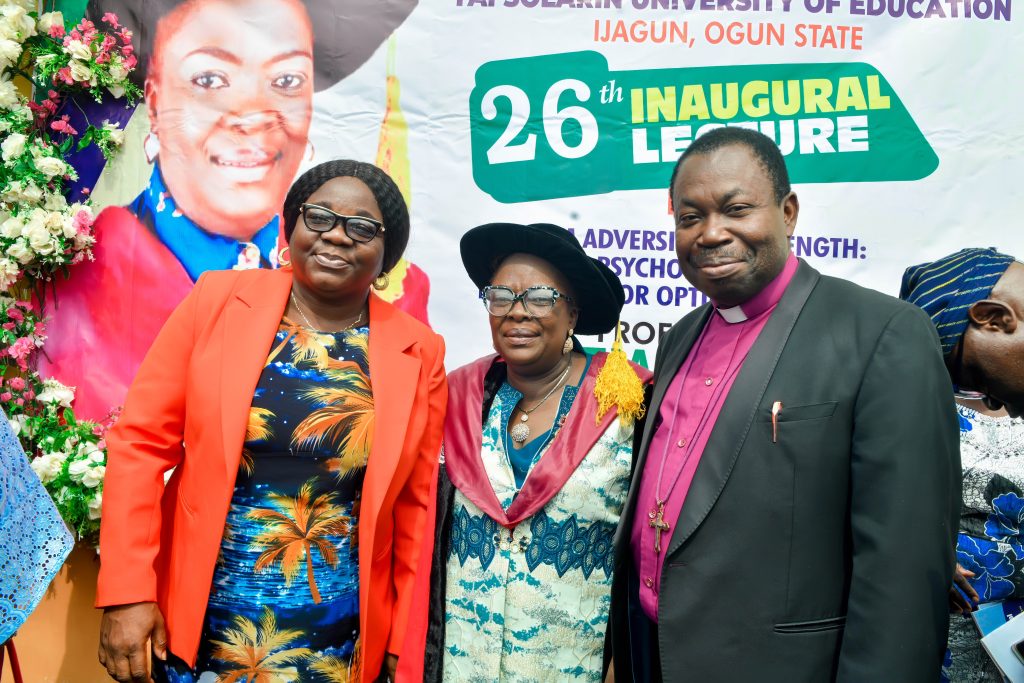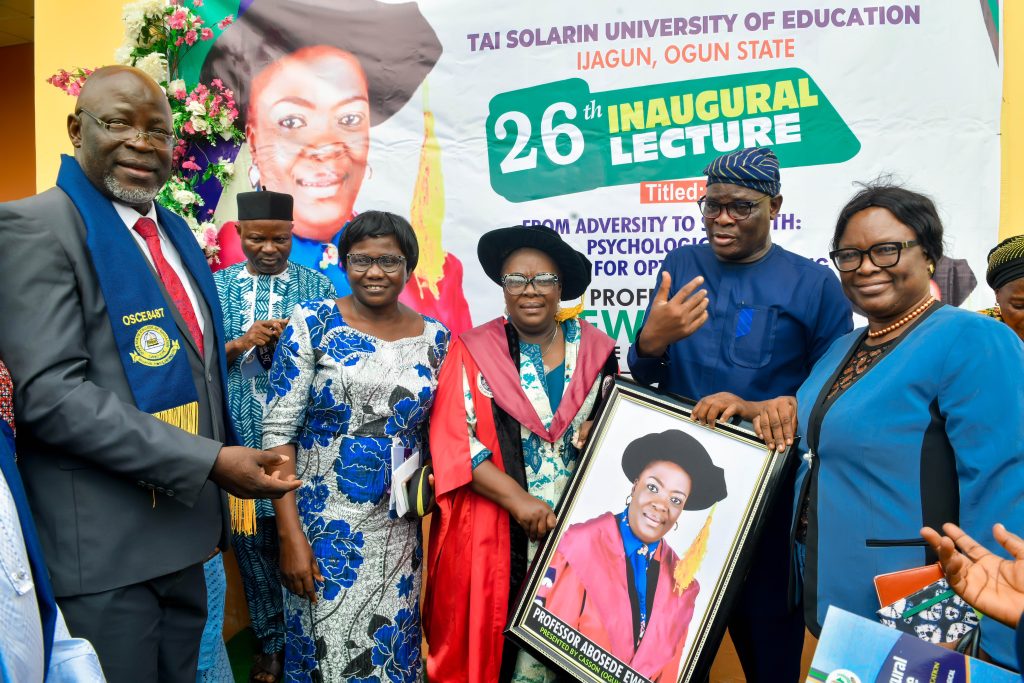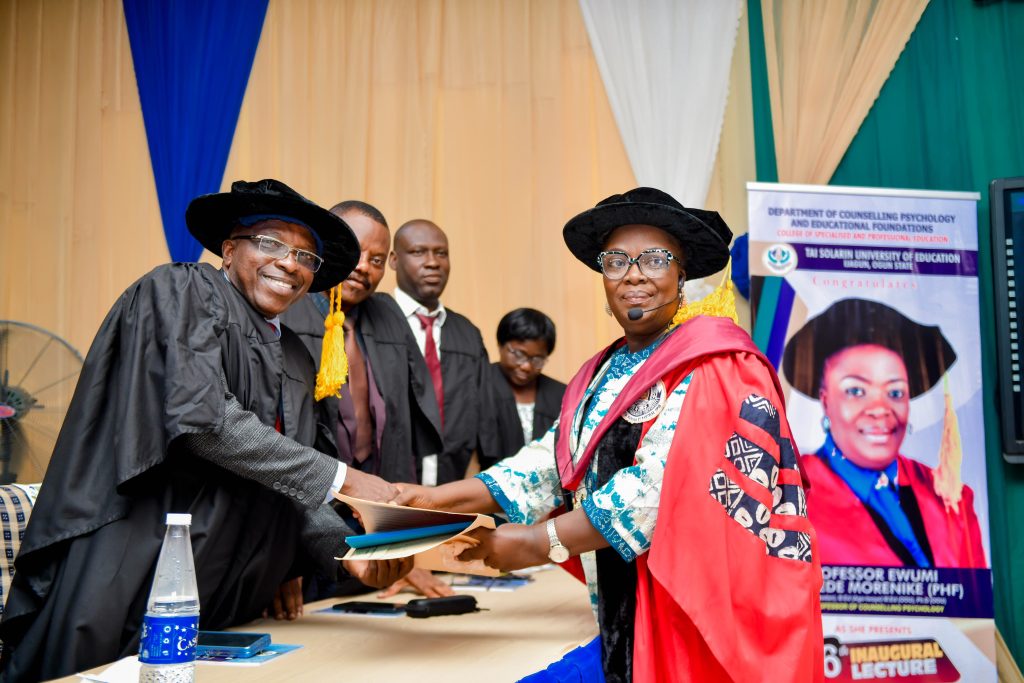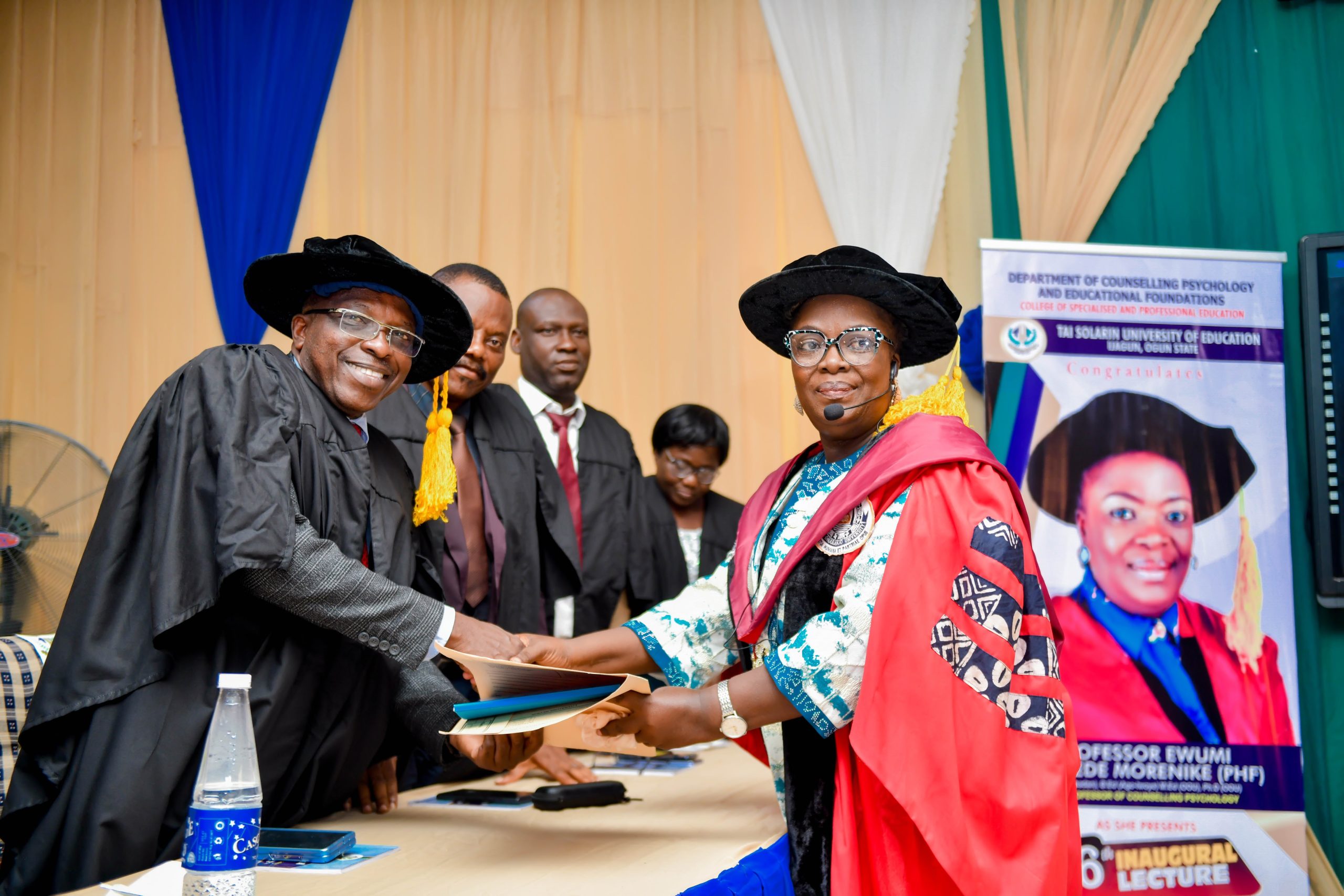Counselling has been described as a viable tool for well-being, self-fulfilment and social order that leads to optimal living across the lifespan of human beings.
This assertion was made by a Professor of Counselling Psychology, Professor Abosede Morenike Ewumi, recently at the 2012 TETfund Hall of the Ijagun main campus of the institution, where she delivered the 26th Inaugural Lecture of the Tai Solarin University of Education with the title, “From Adversity to Strength: Psychological Resilience for optimal Well-being”.
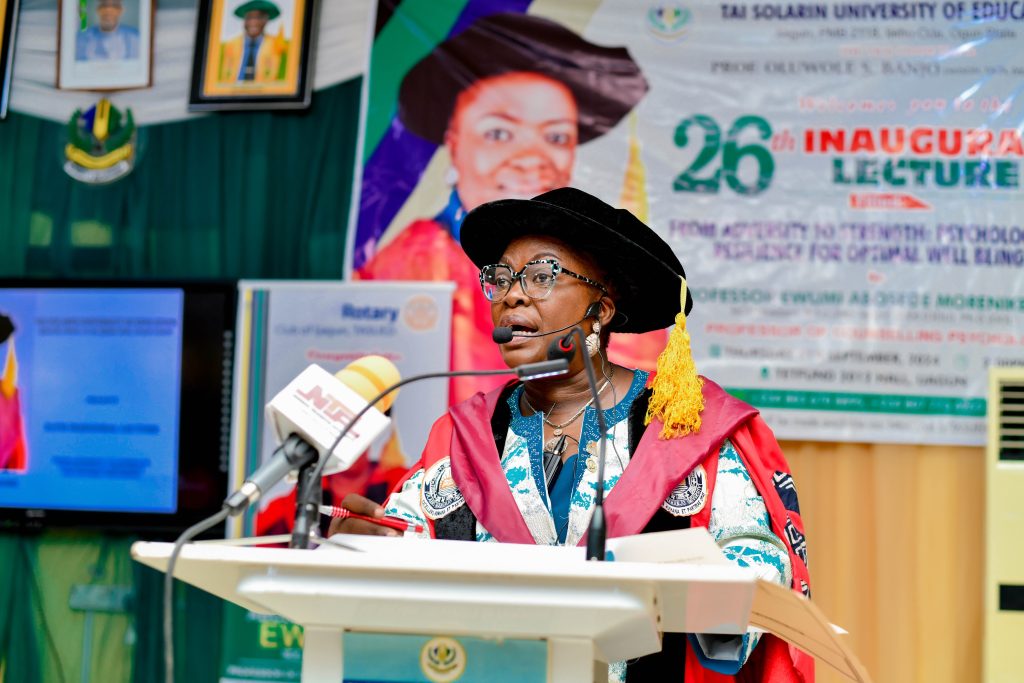
Professor Ewumi noted that counselling as a profession can be used as an instrument to foster positive changes in one’s life. These include a change in perspectives, new insight, new ways of thinking about self and situations, a new awareness of feelings, enhanced capacity to tolerate and regulate feelings, new actors or behaviours and new decisions about life.
“Counselling is a powerful tool for anyone who wants to objectively explore their thoughts or feelings about socio-personal, academic or occupational challenges. Counselling services offered by trained therapists can significantly impact the lives of individuals, families and communities”, she noted.
According to Prof. Ewumi, A Paul Harris Fellow, further added, “Counselling helps people navigate the wide range of difficult life experiences. By implication, counselling empowers people to lead healthy and fulfilling lives”.
“Optimal Wellbeing is not just the absence of disease or illness. It is a complex combination of a person’s physical, mental, emotional and social health factors. Well-being is strongly linked to happiness and life satisfaction. Wellbeing is described about yourself and your life. Wellbeing is the state of being happy, healthy or prosperous. A state of well-being is a state of being well. A close synonym for well-being is wellness. Wellness is described as taking care of your body by practising self-care, including proper nutrition, exercise, leg hydration, mindfulness, etc.”, she further added.
The Professor of Counselling Psychology described Resilience as the process of adapting well in the face of adversity, trauma, tragedy, threats, or significant sources of stress such as family and relationship problems, serious health problems or workplace and financial stressors.
“Resilience is the process of being able to adapt well and bounce back quickly in times of stress. The stress may manifest as family or relationship problems, serious health problems, problems in academics or the workplace and even financial problems, to mention a few”, she stated.
The University don further added that developing resilience can help individuals cope optimally and bounce back after changes, challenges, setbacks, disappointments and failures. While pointing out that the road to resilience is often paved with emotional stress and strain. It can be learned as it involves developing thoughts, behaviours and actions that allow individuals to recover from traumatic or stressful events in life and maximize living.
She also added that Resilience is a foundational quality that empowers individuals to face life’s challenges with strength, adaptability, and a positive mindset. By understanding the concept of resilience and applying the 7 Cs- competence, confidence, connection, character, contribution, coping, and control-individuals can cultivate resilience in their lives. Building resilience is a lifelong journey that requires continuous practice, self-reflection, and a commitment to personal growth.
“Through resilience, we can navigate life’s complexities, embrace adversity as an opportunity for growth, and emerge stronger, wiser, and more compassionate individuals.
Becoming more resilient not only helps you weather the inevitable storms in life but it also empowers you to grow and even improve your well-being along the way. Resilience involves behaviours, thoughts, and actions that anyone can learn and develop. Like building a muscle, increasing one’s resilience takes time and intentional practice”, Ewumi asserted.
She concluded by noting that, Global perspectives point to the fact that effective Educational programmes must involve well-designed and articulated counselling programmes implemented by a professionally trained counsellor. The professional assists a normal person who is experiencing difficulties and challenges, which may include emotional, behavioural, vocational, marital, educational, rehabilitation and life-stage developmental patterns.
The occasion was graced by Members of the University Management Team, the Vice-Chancellor, Gerar University of Medical Science, Imope-Ijebu, Prof Niran Adetoro; former Deputy Provost, Sikiru Adetona College of Education, Science and Technology, Omu-Ijebu, former Dean, COAEVOT, Prof Remi Adesemowo, Oluko Dr. Cornelius Oluwarotimi Onanuga, Bishop of Diocese of Ijebu, Anglican Communion, Most Revd. Dr. Rotimi Oludipe, His Royal Majesty, Oba Abdulrasheed Toye Alatise, Gengande of Ososa among others.
